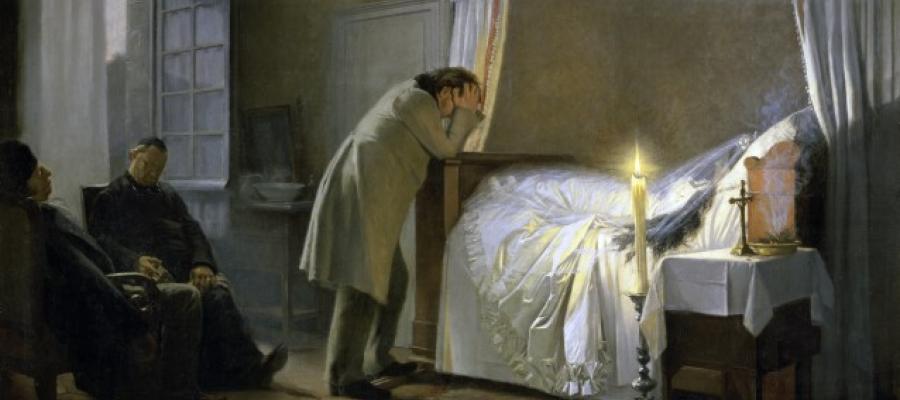Truth and Other Fictions
Mar 31, 2013Most of us think we know the truth when we see it. But what exactly is truth, anyway? Philosophers have offered a blizzard of different...

Since the Corona crisis is far from over, I’m keeping my promise to attempt to distract you with philosophical puzzles for yet another month. This month, the puzzle has both psychological and philosophical dimensions.
Here’s a bit of simplified background evolutionary thought that will point the way to the psychological side of the puzzle. It’s no surprise, from an evolutionary standpoint, that humans and other creatures evolved brains with representational capacities: memory, thought, sense perception, etc. Representational capacities allow creatures to form internal models of the world so that they can better keep track of, or figure out, where food is, where predators are, when it gets cold or hot, where one’s shelter is, and so on.
It is also not much of a surprise that humans (and perhaps Timothy Williamson’s cat) have evolved imaginative capacities: the ability to represent situations that are contrary to how you in fact take them to be. (For those interested: I’ve distinguished different senses of “imagination” in other work, especially this piece). Imagining, after all, facilitates planning. And planning can help you shape the future in a way that is advantageous to you.
Of course, there are still numerous questions about how the representational capacities mentioned here managed to emerge from the process of natural selection. But my point is that it’s consonant with the basic logic of selection that such capacities would be selected for, given the kinds of pressures that organisms on our planet face.
But even though it is no evolutionary surprise that we humans have imagination, one thing we do with our imaginative capacities is indeed surprising: we produce and consume boatloads of fiction—stories about events that never happened and never will happen in the real world. Why would creatures that evolved to survive in a harsh reality spend so much time, energy, effort, and (in modern environments) money creating and consuming plays, epics, novels, movies, and even musicals that depict non-real events? Such a predilection appears to be an enormous drain on cognitive and other resources that could be better spent on things that directly contribute to survival and reproduction.
That puzzle, of course, is not new. But what I want to do here is heighten it by noting an extra layer to the phenomenon: not only do we humans produce and consume fiction, but we also argue with one another about what “really” happened in the various fictional worlds with which we become engaged.
This should be even more puzzling—at least psychologically. Why on earth should we be so attracted to arguing over what the “truth” is about characters and events that we know never existed in the first place? “Han Solo shot first!” “No he didn’t!” “Tony Soprano got shot in the end!” “We don’t know that!” Why do we humans argue so much about things that we know are unreal?
Consider this Goodreads thread on the character Emma in Flaubert’s Madame Bovary. What we see in it is a charming set of attempts to make sense of Emma’s behavior, often with conflicting theories, even though that character never existed and even though there can never be a fact of the matter. One person thinks Emma had affairs out of mania induced by bipolar disorder. Others think that she just felt extremely cooped up in her small, French bumpkin town. Another thinks it’s narcissism. And yet another thinks that Emma had been infected by consumerist social values and thus suffered from “shopaholism.” All the arguments for these positions appear to be made in earnest, as if there were a fact of the matter to be gotten at.
What’s so surprising, psychologically speaking, is that people even care to “correct” one another about things they know never happened. So that’s the puzzle I want to focus on. Note, also, that this puzzle doesn’t actually need an evolutionary spin to be interesting: even if selection were neutral as to whether we should care about fiction at all or more particularly in this interpersonal, argumentative way, it would still be puzzling that humans were so constituted as to be inclined to engage in such arguments. After all, we all have pressing needs in the real world. It’s easy to say, “we do it because we enjoy it!” But that just pushes the question back: why is the human psychological apparatus set up in a way that we enjoy this apparently useless activity?
The deeper philosophical aspect to the puzzle is this:
What is it we are even doing when we argue with one another about what is true in a fiction? Suppose you say that P is true in a certain fiction, and I say not-P is true in that fiction. Now suppose you manage to persuade me, so that I now also believe that P is true in the fiction. Aside from winning a petty argument, what is it you’ve truly managed to accomplish? And why can’t we be content with one version of the story living in your head and another version living in mine? Interpersonal persuasion about the course of real events can have enormous practical import. But interpersonal persuasion about unreal events accomplishes... what?
Stay tuned for a solution—an attempted solution—next month!
Image courtesy of Wikimedia Commons